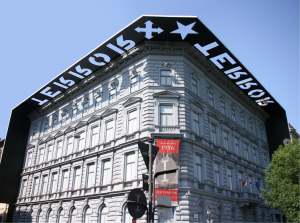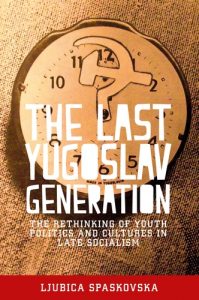Conference programme available: Transnational and Global Dimensions of Justice and Memory Processes 8-9 June
Interested in transnational and global dimensions of justice and memory processes? Would you like to hear papers from three of our 1989 after 1989 academics covering topics such as transnational perspectives on the Kurapaty Memorial Site and transnational advocacy networks and corporate liability for international crimes?
The conference Transnational and Global Dimensions of Justice and Memory Processes in Europe and Latin America will be held in Paris on 8-9 June and the programme is now available.
The conference is organised by the University of Paris Nanterre, the Institut des Sciences sociales du Politiques (CNRS) and the University of Exeter, within the framework of the AHRC funded project The Criminalization of Dictatorial Pasts in Europe and Latin America in Global Perspective.
Transnational and Global Dimensions of Justice and Memory Processes in Europe and Latin America
June 8-9, 2017
Institut culturel roumain
1 rue de l’exposition, Paris
 Justice and memory processes that had accompanied the “third wave of democratisation” have been the subject of a large body of academic literature. These works have commonly taken certain approaches. Some have analysed these processes within national borders or by providing comparative accounts of countries seen as discrete units, disconnected from transnational or global developments. Others, by contrast, have tried to account for the criminalization of dictatorships and conflicts in terms of the emergence of international norms based on an ethics of human rights and a “cosmopolitan memory” – often driven by a decontextualized remembrance of the Holocaust. This scholarship has however tended to overgeneralize global trends without always grasping the complexity of local attempts at dealing with the past. In the last ten years, a third approach, focusing on specific transnational entanglements, has gained ground. This emerging literature has started to analyze empirically transnational activism, exchanges of knowledge and expertise at bilateral, regional or international levels, the impact of legal and mnemonic narratives outside their countries of origin, and the role of international organizations and NGOs in dealing with mass violence.
Justice and memory processes that had accompanied the “third wave of democratisation” have been the subject of a large body of academic literature. These works have commonly taken certain approaches. Some have analysed these processes within national borders or by providing comparative accounts of countries seen as discrete units, disconnected from transnational or global developments. Others, by contrast, have tried to account for the criminalization of dictatorships and conflicts in terms of the emergence of international norms based on an ethics of human rights and a “cosmopolitan memory” – often driven by a decontextualized remembrance of the Holocaust. This scholarship has however tended to overgeneralize global trends without always grasping the complexity of local attempts at dealing with the past. In the last ten years, a third approach, focusing on specific transnational entanglements, has gained ground. This emerging literature has started to analyze empirically transnational activism, exchanges of knowledge and expertise at bilateral, regional or international levels, the impact of legal and mnemonic narratives outside their countries of origin, and the role of international organizations and NGOs in dealing with mass violence.
Focusing on Europe and Latin America, this conference aims to take stock of this transnational turn in justice and memory studies and to develop a socio-historical analysis of the circulation of norms, repertoires of collective action and models adopted to deal with the legacies of authoritarian regimes and armed conflicts. It seeks to trace the interconnections and mutual influences of these processes both within Europe and Latin America and between the two regions, as well as the mobilizations of European and Latin American actors in international institutions, global NGOs, or at venues on other continents.
[Top]








 Ljubica Spaskovska is an Associate Research Fellow working on our research project 1989 after 1989 at the University of Exeter. Her research maps the history of the end of Yugoslavia’s global engagements not only as a subject/phenomenon associated with political/diplomatic history, but also as a broader societal project.
Ljubica Spaskovska is an Associate Research Fellow working on our research project 1989 after 1989 at the University of Exeter. Her research maps the history of the end of Yugoslavia’s global engagements not only as a subject/phenomenon associated with political/diplomatic history, but also as a broader societal project.